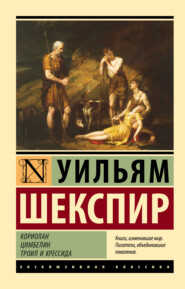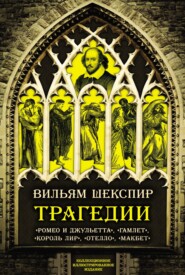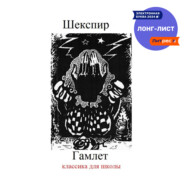По всем вопросам обращайтесь на: info@litportal.ru
(©) 2003-2025.
✖
Romeo and Juliet / Ромео и Джульетта
Настройки чтения
Размер шрифта
Высота строк
Поля
For this time all the rest depart away:
You, Capulet, shall go along with me,
And Montague, come you this afternoon,
To know our farther pleasure in this case,
To old Free-town, our common judgement-place.
Once more, on pain of death, all men depart.
[Exeunt Prince and Attendants; Capulet, Lady Capulet, Tybalt, Citizens and Servants.]
Montague
Who set this ancient quarrel new abroach?
Speak, nephew, were you by when it began?
Benvolio
Here were the servants of your adversary
And yours, close fighting ere I did approach.
I drew to part them, in the instant came
The fiery Tybalt, with his sword prepar’d,
Which, as he breath’d defiance to my ears,
He swung about his head, and cut the winds,
Who nothing hurt withal, hiss’d him in scorn.
While we were interchanging thrusts and blows
Came more and more, and fought on part and part,
Till the Prince came, who parted either part.
Lady Montague
O where is Romeo, saw you him today?
Right glad I am he was not at this fray.
Benvolio
Madam, an hour before the worshipp’d sun
Peer’d forth the golden window of the east,
A troubled mind drave me to walk abroad,
Where underneath the grove of sycamore
That westward rooteth from this city side,
So early walking did I see your son.
Towards him I made, but he was ware of me,
And stole into the covert of the wood.
I, measuring his affections by my own,
Which then most sought where most might not be found,
Being one too many by my weary self,
Pursu’d my humour, not pursuing his,
And gladly shunn’d who gladly fled from me.
Montague
Many a morning hath he there been seen,
With tears augmenting the fresh morning’s dew,
Adding to clouds more clouds with his deep sighs;
But all so soon as the all-cheering sun
Should in the farthest east begin to draw
The shady curtains from Aurora’s bed,
Away from light steals home my heavy son,
And private in his chamber pens himself,
Shuts up his windows, locks fair daylight out
And makes himself an artificial night.
Black and portentous must this humour prove,
You, Capulet, shall go along with me,
And Montague, come you this afternoon,
To know our farther pleasure in this case,
To old Free-town, our common judgement-place.
Once more, on pain of death, all men depart.
[Exeunt Prince and Attendants; Capulet, Lady Capulet, Tybalt, Citizens and Servants.]
Montague
Who set this ancient quarrel new abroach?
Speak, nephew, were you by when it began?
Benvolio
Here were the servants of your adversary
And yours, close fighting ere I did approach.
I drew to part them, in the instant came
The fiery Tybalt, with his sword prepar’d,
Which, as he breath’d defiance to my ears,
He swung about his head, and cut the winds,
Who nothing hurt withal, hiss’d him in scorn.
While we were interchanging thrusts and blows
Came more and more, and fought on part and part,
Till the Prince came, who parted either part.
Lady Montague
O where is Romeo, saw you him today?
Right glad I am he was not at this fray.
Benvolio
Madam, an hour before the worshipp’d sun
Peer’d forth the golden window of the east,
A troubled mind drave me to walk abroad,
Where underneath the grove of sycamore
That westward rooteth from this city side,
So early walking did I see your son.
Towards him I made, but he was ware of me,
And stole into the covert of the wood.
I, measuring his affections by my own,
Which then most sought where most might not be found,
Being one too many by my weary self,
Pursu’d my humour, not pursuing his,
And gladly shunn’d who gladly fled from me.
Montague
Many a morning hath he there been seen,
With tears augmenting the fresh morning’s dew,
Adding to clouds more clouds with his deep sighs;
But all so soon as the all-cheering sun
Should in the farthest east begin to draw
The shady curtains from Aurora’s bed,
Away from light steals home my heavy son,
And private in his chamber pens himself,
Shuts up his windows, locks fair daylight out
And makes himself an artificial night.
Black and portentous must this humour prove,

















